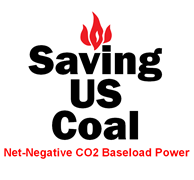
 






.gif)



|
Signature Sponsor


January 27, 2023 - West Virginia state treasurer Riley Moore has proposed a proxy voting reform bill for for state investments to ensure that proxy votes are based on the financial interests of pension makers and taxpayers, rather than ESG factors. Moore said: “West Virginia needs to take back control of its shareholder voting rights to ensure our public funds are not being used to advance social and political agendas that go against the financial interests of our pensioners and taxpayers.”
He added: “With the Biden administration and Wall Street activists increasing the use of ESG with retirement investments to advance their woke agendas, it’s critical for states to use our power in the marketplace to stand up for our citizens’ financial security.” US SIF has launched the Congressional sustainable investment caucus, a resource on sustainable investing, the use of ESG criteria and the relevance of the practice to congressional policy. It will be led by representatives Juan Vargas and Sean Casten. The caucus will seek to educate members of Congress on the market-driven benefits of sustainable investing, as well as informing policymaking that provides investor protection and market transparency. It will support federal agencies to advance proposals and regulations which recognise the importance of using ESG criteria in the investment process through regular events and discussions. It has also been endorsed by New York City Comptroller Brad Lander and Ceres. Make My Money Matter and a group of celebrities, politicians and NGOs have written to UK retail banks calling on them to stop financing fossil fuel expansion. The banks include HSBC, Barclays, Santander, NatWest and Lloyds, which collectively provided $16 billion in finance to the 50 top oil and gas expanders, according to data from ShareAction. The letter demands that the banks stop directly financing new fossil fuel activity, put existing clients on notice to stop their expansion plans and end relationships with clients who do not stop fossil fuel expansion. Both Lloyds and HSBC have publicly committed to stop direct financing of new oil, coal and gas expansion. A spokesperson for NatWest said: “We no longer lend or underwrite coal, major oil and gas producers unless they have a credible transition plan in line with the Paris Agreement, which has resulted in us committing to exit almost £1 billion of fossil fuel financing. We have also committed to stop financing UK coal by October 2024 and globally by 2030.” A spokesperson for HSBC said: “HSBC’s 1.5 degree aligned financed emissions targets and updated energy policy mean we will no longer provide new finance or advisory for new oil and gas fields or related infrastructure, or for the most carbon-intensive oil assets.” A Barclays spokesperson said: “We are clear that addressing climate change is an urgent and complex challenge. Since January 2019, Barclays has not provided any project finance for the construction or material expansion of coal-fired power stations or the development of greenfield thermal coal mines anywhere in the world. Barclays went further in 2020 to restrict general corporate financing that is specified as being for new or expanded coal mining or coal-fired power plant development.” A Santander spokesperson said: “We are fully committed to supporting the transition to net zero and have set emission reduction targets for 2030 across a range of material emitting sectors within our loan book, including power generation, thermal coal, and energy (oil and gas). Our lending policies prohibit the financing of new upstream oil clients and projects, among other restrictions.” Lloyds had not responded to a request for comment at the time of publication. The Competition and Markets Authority has said it will look at easing climate change competition rules. In a speech delivered by CEO Sarah Cardell, she said: “We know there is pent up demand among businesses, including insurers and asset managers who form such an important part of the Edinburgh economy, to work together on initiatives that would combat or mitigate climate change. Brexit has allowed us to take a fresh look at the guidance we give firms. This has given us the opportunity to go further than we have before in providing reassurance and clarity on our approach – including spelling out where we won’t take enforcement action against business collaboration to tackle climate change.” Next month, the CMA will be consulting on a proposal that will “ease the requirements on firms and provide more clarity”. The Environmental Defence Fund and Ceres have published a set of climate principles for oil and gas mergers and acquisitions, to guide companies as they seek to decarbonise their portfolios. As oil and gas emitters seek to reduce their emissions to meet net-zero commitments, many have divested certain assets to decarbonise their portfolios, which fails to reduce overall greenhouse gas emissions. The principles include guidance on pre-deal due diligence, emissions reduction targets and strategy, disclosure and decommissioning. French asset manager Phitrust and Swiss investor Inyova have joined Shareholders for Change’s (SfC) membership. SfC currently has 14 members, which collectively manage around €30 billion in assets. More than three-quarters of ultra-high-net-worth investors feel responsibility to engage in impact investing, according to Barclays’ Private Bank’s annual Investing for Global Impact Report. Eighty percent believe investors do not have to give up returns to invest sustainably, and 39 percent are motivated to incorporate sustainable considerations for better returns and reduced risk. Eighty percent also view their private capital contribution as essential to addressing climate change. |
 











|